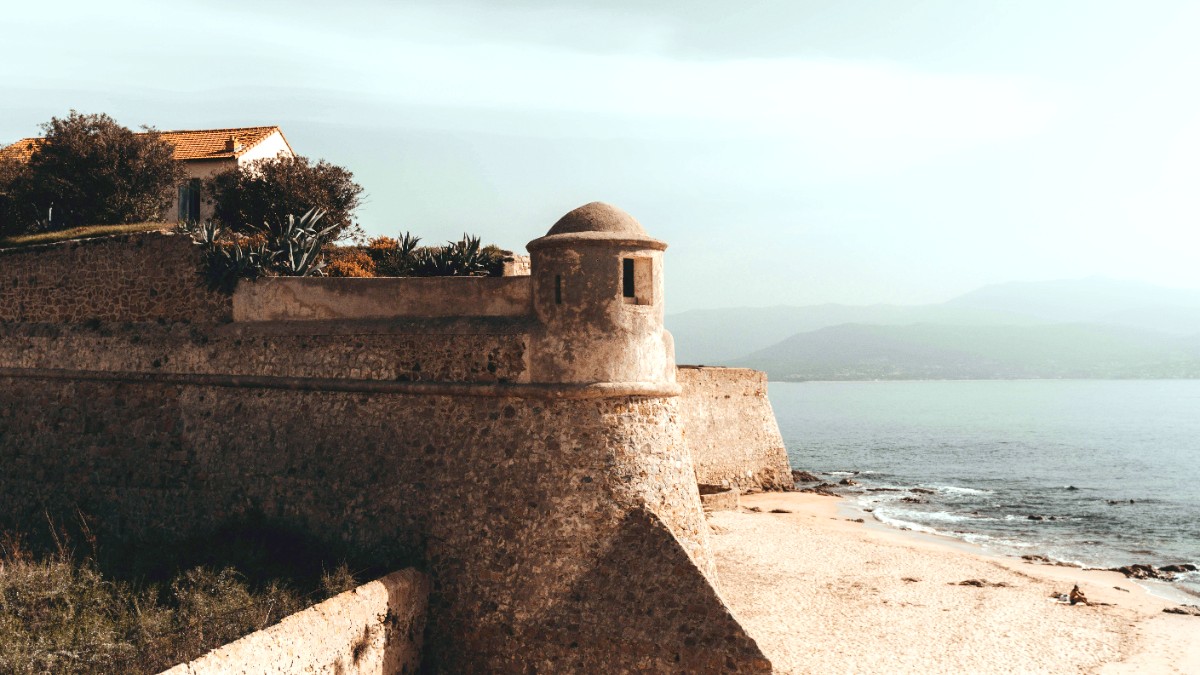
Corsica, France
Corsican cuisine blends French and Italian culinary traditions, drawing heavily from the island's agricultural practices, especially chestnuts and pork. The historical need for self-sufficiency in the mountains led to reliance on preserved meats and hardy crops.
Coastal areas, like Ajaccio, add fresh seafood. Food often features simple preparations that highlight the quality of fresh, local ingredients.
Lunch from 12:00 PM to 2:00 PM. Dinner from 7:00 PM to 10:00 PM, extending later in summer. Many restaurants close between services.
Always say "Bonjour" when entering and "Merci, au revoir" when leaving. Service charge is included; a small additional tip for good service is appreciated.
Ordering Corsican wine with meals is common. Breakfast is light; lunch can be substantial (menu du jour); dinner is a relaxed, multi-course meal.
Selection of cured pork meats: Coppa, Lonzu, Prisuttu, and seasonal Figatellu (liver sausage).
Widely available in restaurants, charcuteries, and Ajaccio market.
Fresh whey cheese from goat or sheep's milk, used in savory dishes (omelets, cannelloni) and desserts (fiadone).
Seasonal: November to May.
Often served in a rich, slow-cooked stew (civiet de sanglier), flavored with red wine and maquis herbs.
Available in traditional restaurants.
Dry, crumbly biscuits in various flavors (lemon, anise, wine, chestnut flour).
Light cheesecake with Brocciu cheese, lemon zest, and sometimes eggs, traditionally crustless.
Upscale restaurants offer refined Corsican and French cuisine, often with sea views. Focus on fresh, seasonal ingredients. Reservations recommended.
Numerous options in Old Town and port area. Traditional Corsican dishes, fresh seafood, French bistro favorites, and pizzas.
Bakeries, small pizzerias, local traiteurs for affordable and quick meals. Ajaccio Market for fresh produce and ingredients.
An excellent place to find fresh local produce, artisanal cheeses, high-quality charcuterie, honey, olive oil, and other Corsican specialties.
A genuine local experience for ingredients or ready-to-eat items.
Ajaccio lacks large, dedicated modern food halls; however, the market serves as a central point for a diverse array of fresh food products.
The market centralizes fresh food products effectively.
Pizzerias are common due to proximity and historical ties to Italy.
Some Chinese or Japanese restaurants, specifically in central tourist areas.
A few other European restaurants might be found in central Ajaccio.
Mainly Corsican and French cuisine dominates the dining scene.
Halal options are very limited; no dedicated halal restaurants. Inquire directly with restaurants about ingredients.
Best to inquire or self-cater.
Kosher options are very limited; no dedicated kosher restaurants. Plan to self-cater from supermarkets that may stock certified products.
Self-catering is a good option.
Carry a translation card describing your dietary restrictions in French. This card clarifies your needs to restaurant staff, listing common allergens like gluten, dairy, or nuts.
Chestnut flour, used in many traditional Corsican dishes (like pulenta and canistrelli), is naturally gluten-free. This provides some safe options for gluten-intolerant travelers.
Specific cooking classes for tourists are limited directly in Ajaccio, but private chefs or guesthouses may offer bespoke experiences.
Explore Food ToursInquire at the Tourist Office for recommendations on châtaigneraies (chestnut groves), olive oil mills, vineyards, and cheese producers.
Various food festivals take place across Corsica, celebrating specific produce. Check local event calendars.
When dining out, look for "menu du jour" for lunch. This fixed-price meal, often with local specialties, is a better value.
Enjoy a great meal at a good price.
Carry a translation card describing your dietary restrictions in French. This helps restaurant staff clearly understand your needs.
Clear communication matters.
Try the local Brocciu cheese, but remember it is seasonal, typically available from November to May. Ask your server for local specialties.
For a true local experience, visit the Ajaccio Market in the morning. Sample local cheeses and charcuterie, and pick up fresh bread for a picnic.
When dining out, look for "menu du jour" for lunch. This fixed-price meal, often with local specialties, gives good value.
Engaging with local food culture extends beyond dining. Consider these opportunities: